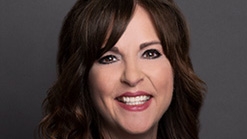Avoiding the Slump
Rossi, who formerly held senior risk management and credit positions at Freddie Mac and Fannie Mae, says that mortgage institutions now are not as stable as they once were.
“Due to structurally what’s been happening over the last 15 years, traditional banks have largely exited the origination and servicing sides of the industry, which led non-bank financial institutions to take that space over,” he explained. “Generally speaking, though, they suffer from certain characteristics that make them volatile: They’re thinly capitalized, they don’t have to adhere to certain risk requirements, have volatile liquidity and sources of liquidity, [and their] depositories are dependent on low-cost deposits.”
Rossi also says that today’s economy coupled with the changing mortgage business — which was formerly driven by refinances and has changed into a purchase market — makes it hard for mortgage businesses and lenders to eke out profits. Additionally, he says that state regulatory policies have become lax. “IMBs aren’t diversified and aren’t subject to federal safety and soundness oversight, and state regulators may give oversight,” he said.
Rossi, like the Federal Reserve, predicts a mild recession shortly down the road, and anticipates that mortgage companies will reflect that.
“What goes around comes around. The best thing that these institutions can do is make sure that they’re bolted down from an interest rate and liquidity standpoint, especially when it comes to managing their liquidity risk seriously,” he said. “Diversifying their lines of credit and purchase agreements doesn’t hurt either, as well as having contingency backup sources. Those are easy things that companies can do.”
What’s Salvageable?
When a mortgage company files bankruptcy, both Power and Indelicato describe the process as grueling and unnerving, especially when it comes to saving the company’s assets. To put it bluntly, Indelicato says that his firm was only able to salvage one mortgage company’s assets — but only for a limited time. “Generally what happens when a mortgage originator files is that they’re really supported by warehouse lines. Those all dry up. But it doesn’t mean there’s not salvageable assets,” he said. “You just have to know how to liquidate them.”
Power simply says the process is “complicated,” especially since the companies are servicers of government agencies like Fannie Mae and Freddie Mac. “When the companies go bankrupt, that’s a default on the GSEs,” he explained. “And they just lose the ability to continue funding loans. They can try to finish loans in the pipeline, but that doesn’t always go through.”
Power says that mortgage companies have many different types of assets on their balance sheets such as title work, and that Power and Indelicato’s job is attempting to monetize those assets as a last-ditch effort. “This isn’t a systemic issue, either,” Indelicato said. “This is a business model issue. It’s the growth of 2020 combined with skyrocketing interest rates that caused this. It may not cause a recession like 2008 and 2009, but it may make it harder to get mortgages. It’s going to be more costly, and will affect the home market.”
“I agree with Mark [Indelicato],” Power added. “Higher interest rates obviously affect a lot, and I think we’ll even see the construction industry — which caters to home building — will see less demand. We’ll see rippling effects of this, but it won’t be as deep a drop as we saw in the last recession.”













